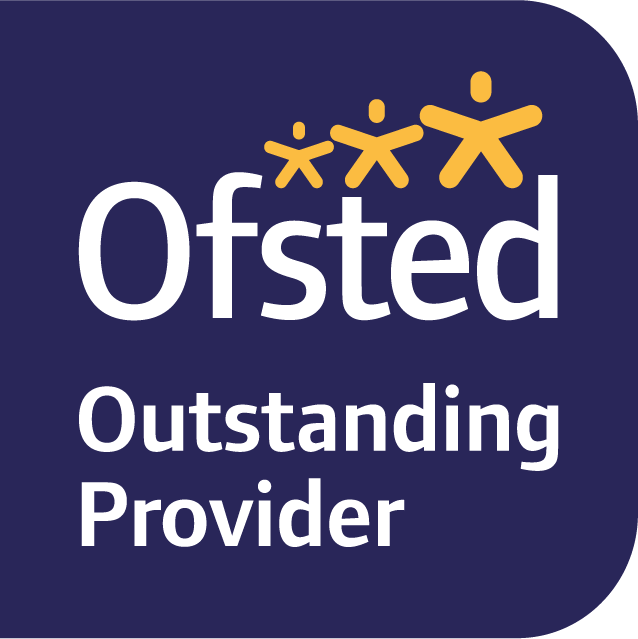Overview
About the course
This is an entry-level apprenticeship which provides the foundation knowledge skills & experience for the role of Supply Chain Operator within occupational areas in the Supply Chain industry.
Who is this programme for?
Supply Chain Operators are primarily responsible for managing the movement of goods for a variety of customers across all sectors, and as such their customer base will range from large global organisations to sole traders and private customers in local areas, depending on their organisation. They may be required to work in shifts, for example overnight or working on weekends, and some (depending on the nature of their organisation) may be required to work internationally in Europe or at worldwide destinations.
Supply Chain Operators communicate and come into contact with a wide range of people and customers, and have a passion to meet customers’ expectations by providing a quality service that encourages repeat business, showing drive and energy even when challenges arise. Individuals in this role are highly competent in using industry-recognised systems and associated services within their industry sector, and are able to work under pressure to tight deadlines, with excellent time management skills. They are proactive and meet agreed commitments and expectations, taking responsibility for their own actions and doing the right thing.
Contact Us
If you have any questions about this course then please contact us by phone on 01252 40 55 55 or message us.
Your course
What modules are covered?
The apprenticeship program consists of the following 4 components, leading to a Level 2 Supply Chain Operator:
1. Knowledge and understanding of:-
- How to communicate effectively with customers/colleagues (including those working remotely, third party carriers, agencies and other organisations) appropriately in line with situation and organisational style/culture
- Structure of the industry, the methods and modes of transport, the roles available within the sector in general and in relation to their own career aspirations
- Importance of delivering excellent customer service to customers and colleagues, including identifying customer/colleague needs and responding appropriately in line with situation and organisational style/culture
- Vision, objectives and brand of the organisation; the importance of organisation reputation and what can affect it; how their own performance can contribute to organisational success and support or impact on others
- Proposed and actual changes to systems, processes and technology used in the industry, particularly relating to own role; how to keep up to date with any changes in the systems, processes and technology that affect their role
- How their role can affect their health and the need to maintain a level of fitness appropriate to the needs of their role
2. The competency to achieve the following in the workplace:-
- Establish a good rapport with customers/colleagues; promote the values of the organisation in all of their work; identify and respond to or report threats to their organisation’s reputation where relevant
- Communicate effectively (using a variety of appropriate methods such as face to face, telephone, email etc.) with customers and colleagues in line with organisational standards; identify and match customer needs through provision of excellent customer service; work closely with suppliers and customers to ensure any problems, damages or anomalies are corrected
- Demonstrate safe moving and handling of different objects, both manually and using relevant equipment; work individually and as part of a team to safely move and handle objects
- Work well in a team; support colleagues and contribute to achieving objectives or goals
- Seek to review, update and implement improvements to own method of working; positively take on board, and act on, feedback where relevant
- Adapt to new technology and accept the need for change
- Work under pressure and to agreed deadlines
3. The soft skills and behaviours to achieve the following in the workplace:-
- Demonstrate integrity, credibility, honesty and personal drive in every aspect of their role; consistently embody the organisation’s values to promote and enhance brand reputation; strive to meet organisational objectives at all times and demonstrate a belief in the services that the organisation offers
- Take ownership and responsibility for their own safety and that of others at all times; do the right thing and report any issues or concerns to a relevant person
- Pay attention to the safe and effective use of equipment and machinery when carrying out activities
- Take ownership for own performance and training, including demonstrating a keen interest in the industry; proactively drive their ongoing learning and development, and make recommendations for improvement where relevant
- Strive to achieve the best results in all they do; maintain a positive attitude and approach to their work even when priorities and working patterns change
- Demonstrate a commitment to achieving all personal and organisational objectives e.g. completing work, timekeeping, personal appearance and dress code
- Show personal commitment to minimising the effect of work activities on the environment; make recommendations for improvement where relevant
- Embrace the use of relevant technology, systems and equipment – use it responsibly and take an interest in new developments that could support the organisation
- Take a positive interest in others and show a genuine interest in meeting the needs of others
- Demonstrate an approachable and friendly manner; use own initiative when needed to ensure that customer needs and expectations are met.
- Demonstrate pride in their own role through a consistently positive, professional approach with customers and members of wider team; constructively manage difficult situations with colleagues, always striving to achieve the best outcome for the organisation and wider team
4. Functional Skills: English & Maths (if required)
5. End Point Assessment
End point assessment is the final stage of your apprenticeship and you must pass this to achieve your apprenticeship. It is the chance to show the skills, knowledge and behaviours you have gained throughout your apprenticeship.
To find out more about the new standard, click here.
What training will be provided?
The training is delivered and assessed whilst attending Farnborough College of Technology once a week to learn the underpinning knowledge and develop skills in practical workshops. Apprentices are also supported in the workplace with regular progress and reviews.
Your future
What Next?
Apprenticeships are a proven way of increasing staff retention and productivity. 92% of employers who employ apprentices believe that Apprenticeships lead to a more motivated and satisfied workforce. Apprenticeships enable employers to recruit and train the employees to meet the specific needs of their business.
Completing this apprenticeship could provide you the opportunity to progress onto the Level 3 Transport and Warehouse Operations Supervisor.
For more information or to recruit an Apprentice, please contact our Employer Hotline on 01252 407299 or email business@farn-ct.ac.uk
Entry Requirements
What previous qualifications and experience will I need?
The training programme is intended for new or existing staff working in the Supply Chain industry.
The entry criteria are staff aged 16 and over with a minimum of 5 GCSEs A*- D or 9 - 3 to include Maths and English. GCSE’s will be considered along with the results of an initial assessment.
Apprentices without Level 1 English and maths (Grade D / Grade 3) will need to achieve this level and take the test for level 2 prior to taking their apprenticeship end-point assessment. For those with an education, health and care plan or legacy statement, the English and maths minimum requirement is Entry Level 3 and British Sign Language qualification are an alternative to English qualifications for whom this is their primary language.
Ask a Question
Course Enquiry
Please contact us through the form below. After submitting a form we will contact you as soon as possible. We will delete your information one month after the beginning of the next academic year.
Apply
Apply
You can apply for this course online.







